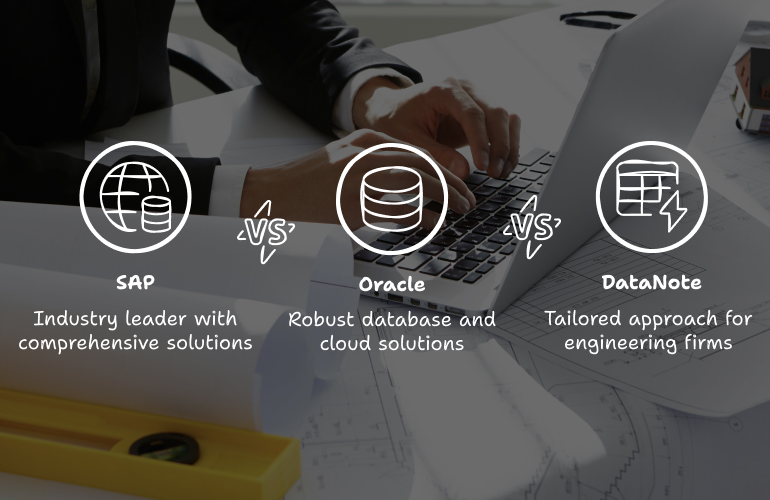In the engineering industry, mid-sized companies face unique challenges that require efficient solutions to manage complex projects, streamline operations, and ensure compliance with industry regulations. Selecting the right Enterprise Resource Planning (ERP) system is crucial for optimizing these processes. Among the leading ERP providers, SAP and Oracle have established themselves as industry giants, while DataNote offers a tailored approach for engineering firms. In this blog, we will compare SAP, Oracle, and DataNote ERP systems to help mid-sized engineering companies make an informed decision.
Contact us
When selecting an ERP system, mid-sized engineering companies should consider factors such as: